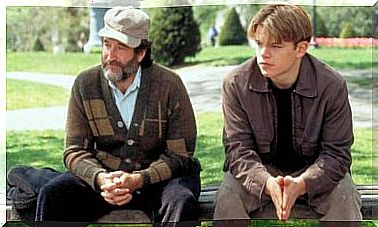How To Fight Emotional Exhaustion?

Have you ever felt emotionally drained? We sometimes go through phases of stress, problems, personal and professional demands. If all of this continues over time, we can end up emotionally exhausted. Emotional exhaustion is an experience during which the person feels that he does not have sufficient psychological means to face everyday life. She has accumulated so much fatigue that she feels weak.
Emotional exhaustion arises when important vital changes occur and when there is a history of problems or situations to be resolved. This fatigue arises because we ask too much of our confrontation system. Or let’s not give it time to recover in the midst of all these challenges. In other words, having multiple issues or challenges in a row is draining us emotionally because we don’t have time to rest and recharge our energy.
Thus, emotional exhaustion gives the feeling of being constantly overwhelmed and overwhelmed by events. This feeling of being mentally tired is quite real and “objective”. And prevents us from moving forward, as we can guess. The smallest task at hand turns into an extremely difficult ordeal that requires great effort.
To get an idea of what emotional exhaustion is (if you’ve never experienced it), you can do a visualization exercise: remember the fatigue you felt after accumulating several hours of work and imagine this same type of day repeating itself over and over again. You feel more and more tired, your performance is weaker and your thoughts more and more negative.
Since emotional exhaustion has harmful consequences for your health, we will explain how to identify it and know if you are experiencing this phenomenon. After that, we will give you clear and concise strategies to be able to overcome this exhaustion. For these strategies to be effective, you must apply them all consistently because there are no magic solutions.

How to detect emotional exhaustion?
To know if you are suffering from emotional exhaustion, you must first focus on the situations or issues that you have been through in the past three / four / five months. It is essential to take a fairly large period of time into consideration. Emotional exhaustion requires an accumulation of demands and stress. It can also appear after you have solved your problems or the storm has passed. So you need to determine if you’ve been through a situation that required a lot of resources or forced you to be constantly alert with a ton of thoughts in your head.
After that, you need to self-observe and identify, if they exist, some of these symptoms:
- Nervousness or discomfort most of the time
- Somatizations more than twice a week: stomach pain, back pain, neck pain or migraines
- Problems concentrating and feeling memory loss, even for important things that you would never have overlooked or forgotten before
- Lack of motivation and low morale
- Feeling of no longer having strength and being overwhelmed by events
- Sleep problems
- Substance use (especially alcohol and cannabis)
- Hypersensitivity and irritability
- Difficulty connecting to the here and now
What are the consequences of the here and now?
All of these symptoms that we have described will lead to serious problems if not treated in time. These problems can be: major depressive disorder, anxiety disorders (such as panic or generalized anxiety) and illnesses such as ulcers or gastrointestinal problems.
Self-esteem problems also appear because the person feels overwhelmed, forgets past successes and ceases to have confidence in their abilities. In the shadow of emotional exhaustion, we see the feeling of incapacity growing. We feel too small in a world that is too big.
So we see that the consequences of emotional exhaustion can be serious. It is therefore important to know how to fight it. Here is a series of strategies to deal with it.

Tips for dealing with emotional exhaustion
Mark your limits and responsibilities
The first strategy that we are going to see for combating emotional exhaustion relates to the need to reorganize your vital structure. Yes, that organizational architecture that got you to where you are today. Surely you’ve said “yes” at a time when you should have said no, not because you didn’t want to but because you couldn’t. You also probably said “no” to an opportunity you were very interested in but scared you so much that you dismissed it. So now is the time to regain your assertiveness and improve your self-esteem.
Set limits and give yourself opportunities. Allow yourself to fail. If you agree with this principle, you can benefit from what chess gives you: learning. So every challenge you take on will never be an investment that only leads to losses. You will stop seeing them that way and nurturing a negative internal dialogue. The one that exhausts you enormously.
Look for moments to relax
To empty the bag of emotional exhaustion, you’re going to have to take a break and disconnect. You need to have moments for yourself, to have fun and reconnect with your personal needs. A good idea can be to catch up with your friends or family and have a good time with them.
However, try not to talk about your problems or exhaustion for more than 15 minutes. Leave space for these people to express themselves as well. And also share positive news and stories.
Make a list of your personal priorities
Try to prioritize. Focus on only one at a time. It is very important that you stop doing multiple things at the same time as it will drain your mind. To fight emotional exhaustion, you need to stop asking too much of your mind.
Allow yourself to do just one thing. Put off until tomorrow what you can’t do today. For this strategy to work, realistically organize all the tasks you need to complete. Base it on their priority and not just what others expect from you.

Learn to express your emotions in a therapeutic way
Knowing how to express your emotions in a therapeutic way means a little more than “saying how you feel”. We refer more to a quality addition in this communication to facilitate the empathy of others. So keeping an emotional journal can be very helpful. It will help you express yourself and let go of your thoughts.
Emotional journaling is a way to separate yourself from your thoughts, break free, and fight emotional exhaustion. Remember that if you don’t express negative emotions like sadness or anger, they can feed back. For example, if you are sad, you may feel even sadder if you feel that other people do not understand you.
Finally, if you are trying to deal with emotional exhaustion and fail, seek help. You can consult a professional who will do an assessment and direct you to strategies to employ. Emotional exhaustion is a risk for physical and mental health, we must know how to fight it.










